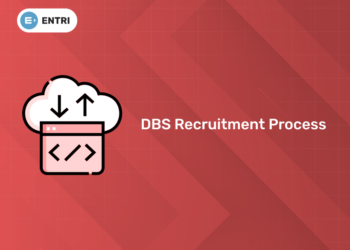Table of Contents
The Companies (Amendment) Bill was submitted to Lok Sabha on July 25, 2019. The Companies (Amendment) Bill was presented by the Minister of Finance, Ms. Nirmala Sitharaman. The Companies (Amendment) Bill was introduced in the year 2019. The Companies Act of 2013 was amended by the Companies (Amendment) Bill of 2019. Disbursement of dematerialized claims is available for the Companies (Amendment) Bill. The individual categories of public institutions are needed to allocate shares in dematerialized layout under the Companies (Amendment) Bill. The Companies (Amendment) Bill comprises clauses that are necessary to understand the significance of the bill. The Bill declares a strong clause under the category as it is stipulated for other types of unregistered organizations or companies also.
Debarring auditors is coming under the same category. To be careful while dealing with a company, we need to face many challenges. The National Financial Reporting Authority can dismiss and bebar a partner or company from rehearsing as a Chartered Accountant. If they have worked for a term between six months to 10 years and they are verified of malfeasance will be heavily charged. The Bill works for the penalty to furnish for dismissing or debarring from selection as an auditor or interior auditor of a group. The term can also be applied to those who are completing a business’s valuation for a term. The term can be verified between six months to 10 years.
The Companies (Amendment) Bill 2019 definition
When the CSR allocations are resolved to straightforward abiding schemes, then the unspent accounts will have to be repositioned to a CSR stand-in within 30 days of the monetary year. The amount that has been withdrawn and expended within three years should be verified thoroughly. Any accounts staying unused after three years should be precisely transferred to one of the funds under Schedule 7 of the Act. Any breach may draw a penalty between Rs 50,000 and Rs 25,00,000 and every defaulting authority may be penalized with the internment of up to three years or a penalty between Rs 50,000 and Rs 25,00,000. So, be careful while assessing the statements.
Re-categorisation of specific violations is the next important session that is coming under the category of the Companies (Amendment) Bill. The 2013 Act possesses 81 compoundable violations. These 81 compoundable violations turned out to be punishable with a fine or detention, or imprisonment along with the fine. These offenses are attended by benches. The 16 of these violations are categorized by the benches as civil defaults. Bill re-categorizes find violations seriously punishable under the law.
Ace to bpsc police constable salary here!
The adjudicating administrators who are designated by the central government of India may currently charge punishments or rather penalties. The offenses that are punishable under the bill categorization include the following offenses. The interested readers can note down the important offenses coming under the specific categories. The disbursement of stakes at a bargain, and negligence to whet annual rescue. The Bill amends the punishments for some different offenses. The charges should be remitted for the registration. According to the bill, the companies need to report amounts on their belongings within 30 days of the outcome of control. There is a provision where it is extendable up to 300 days with the authorization of the RoC. The Bill alters the 60 days of the deadline.
The Bill remarks that a group may not initiate trade unless it buffs a statement within 180 days of incorporation, guaranteeing that every subscriber to the Memorandum of the business has delivered for the claims arranged to be handled by that particular individual. The files are taken for a thorough assurance of their documented oration with the RoC within 30 days of incorporation. If it fails to concede with these conditions and is located not to be assuming out enterprise, its representation of the establishment may be withdrawn from the Register of Companies.
Underneath the Act, the National Company Law Tribuna should accept and shall be endorsed a transformation in the economic year for an establishment associated with an unfamiliar corporation. The alteration in the incorporation record of a general corporation which has the consequence of restoring it to a personal corporation has to be backed by the Tribunal.
The central government has the power to do the necessary changes and has given the authority to make changes as per the guidance. In addition to it, a provincial supervisor can resolve offenses with a punishment of up to five lakh rupees. The Bill improves this roof to Rs 25 lakh. The central government can involve the NCLT for comfort against the improper management of the happenings of the establishment. The Bill notes that in such an objection, the government may also create a claim against an official of the corporation on the basis that the individual is not equipped to bear headquarters in the establishment, for bases such as forgery or neglect. The NCLT can decree a charge against the authority.
The officer will not be able to hold any office in the company for the upcoming five years. If somebody harbors wholesome welfare of at least 25% stakes in a group, institution, or company, or wields influential effect or governance over the league, the individual is directed to make a representation of his welfare. The Bill demands every organization to bring efforts to recognize an individual who is a substantially profitable landlord and demand their subordination under the Act.
Ace to bpsc apo job profile here!
The Companies (Amendment) Bill 2019 Highlights
1: Who was the first woman President of India?
Let’s look into Corporate Social Responsibility (CSR) now. Underneath the Act of Companies (Amendment) Bill, if corporations that are unwilling to deliver for CSR, do not completely disburse the reserves, they must divulge the explanations for non-spending in their yearly stock description. The unspent annual CSR budgets must be deeded to one of the accounts under Schedule 7 of the Act within six months of the economic year.
The Companies (Amendment) Bill, 2019 has been placed before the Parliament on 25 July 2019. While Bill, 2019 is largely to enact into Parliamentary law the provisions already promulgated by way of the Presidential Ordinance, the Bill also brings some interesting changes.
The key feature of the Bill is to replace the existing system of judicial prosecution for offenses with a departmental process of imposition of penalties. As a result, while the monetary burden on companies may go up, offenders will not be having to face criminal courts and the stigma attached with the same.
Some of the other highlights of the changes are as follows. Notably, amendments were made by the Companies (Amendment) Act, 2017 effective from 10th September 2018 effective from 2nd October 2018, whereby all public unlisted companies were required to ensure that the issue and transfer of securities shall henceforth be done in dematerialized mode only. This provision alone had brought about major cleansing of the system, as in lots of cases, shareholding records included men of straw. However, the reality of India’s corporate sector is private companies, constituting roughly 90% of the total number of incorporated companies.
The key feature of the Bill is to replace the existing system of judicial prosecution for offenses with a departmental process of imposition of penalties. As a result, while the monetary burden on companies may go up, offenders will not be having to face criminal courts and the stigma attached with the same.
The Entri App can help the candidates to secure the highest scores for any of the competitive exams. The Entri team can help the candidates to cope up with the difficulty level of the exam. The expert coaching and the test series can help the candidates to grab more opportunities.












